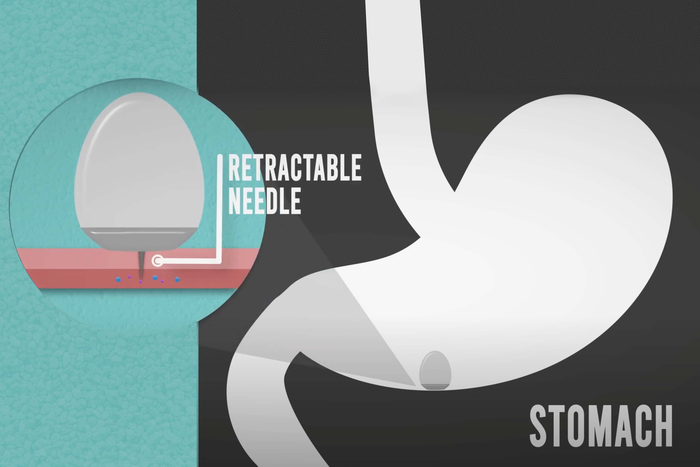Self-Injecting Pill Could Allow Oral Delivery of Monoclonal Antibody and Other Protein Drugs
Date: 6.9.2021
MIT engineers, in collaboration with scientists from Brigham and Women’s Hospital and Novo Nordisk, are developing a drug capsule technology that could allow the oral delivery of monoclonal antibodies, or other large protein-based drugs that normally have to be injected, for diseases ranging from cancer, to rheumatoid arthritis, to Crohn’s disease.
 The new technology is a type of self-injecting capsule, called a liquid-injecting self-orienting millimeter-scale applicator (L-SOMA), which is swallowed, and then effectively injects the liquid medication directly into the stomach wall. In large animal preclinical models, investigators used the technology to deliver four commonly injected medications, including a monoclonal antibody.
The new technology is a type of self-injecting capsule, called a liquid-injecting self-orienting millimeter-scale applicator (L-SOMA), which is swallowed, and then effectively injects the liquid medication directly into the stomach wall. In large animal preclinical models, investigators used the technology to deliver four commonly injected medications, including a monoclonal antibody.
“Although it is still early days, we believe this device has the potential to transform treatment regimens across a range of therapeutic areas,” said Ulrik Rahbek, vp at Novo Nordisk, who, together with Giovanni Traverso, PhD, the Karl van Tassel career development assistant professor of mechanical engineering at MIT and a gastroenterologist at Brigham and Women’s Hospital, is co-senior author of the team’s published paper in Nature Biotechnology.
“The ongoing research and development of this approach mean that several drugs that can currently only be administered via parenteral injections (non-oral routes) might be administered orally in the future. Our aim is to get the device into clinical trials as soon as possible,” Rahbek noted.























